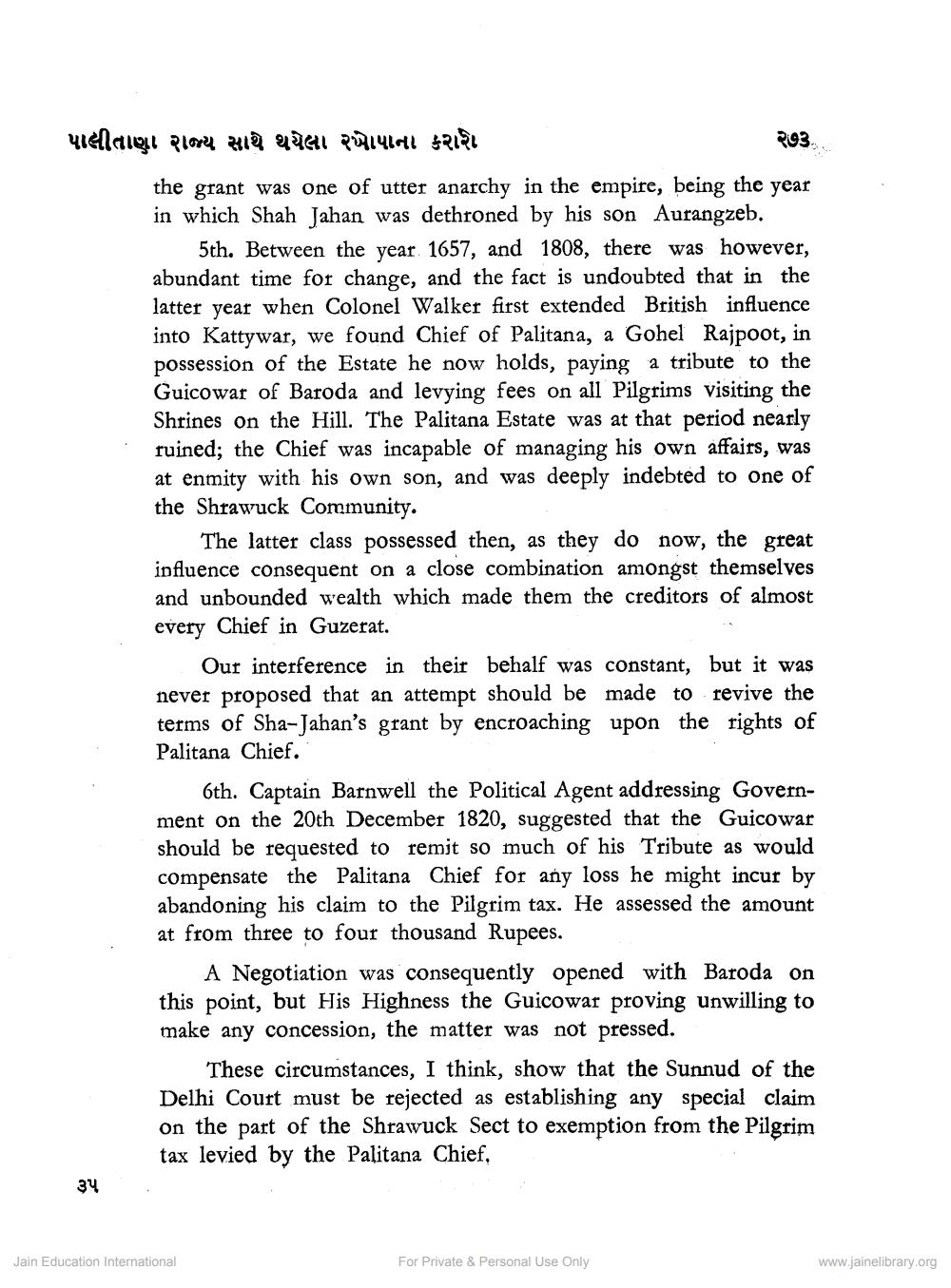________________
પાલીતાણા રાજ્ય સાથે થયેલા રખેપાના કરાર
203
the grant was one of utter anarchy in the empire, being the year in which Shah Jahan was dethroned by his son Aurangzeb.
5th. Between the year 1657, and 1808, there was however, abundant time for change, and the fact is undoubted that in the latter year when Colonel Walker first extended British influence into Kattywar, we found Chief of Palitana, a Gohel Rajpoot, in possession of the Estate he now holds, paying a tribute to the Guicowar of Baroda and levying fees on all Pilgrims visiting the Shrines on the Hill. The Palitana Estate was at that period nearly ruined; the Chief was incapable of managing his own affairs, was at enmity with his own son, and was deeply indebted to one of the Shrawuck Community.
The latter class possessed then, as they do now, the great influence consequent on a close combination amongst themselves and unbounded wealth which made them the creditors of almost every Chief in Guzerat.
Our interference in their behalf was constant, but it was never proposed that an attempt should be made to revive the terms of Sha-Jahan's grant by encroaching upon the rights of Palitana Chief.
6th. Captain Barnwell the Political Agent addressing Government on the 20th December 1820, suggested that the Guicowar should be requested to remit so much of his Tribute as would compensate the Palitana Chief for any loss he might incur by abandoning his claim to the Pilgrim tax. He assessed the amount at from three to four thousand Rupees.
A Negotiation was consequently opened with Baroda on this point, but His Highness the Guicowar proving unwilling to make any concession, the matter was not pressed.
These circumstances, I think, show that the Sunnud of the Delhi Court must be rejected as establishing any special claim on the part of the Shrawuck Sect to exemption from the Pilgrim tax levied by the Palitana Chief,
૩૫
Jain Education International
For Private & Personal Use Only
www.jainelibrary.org




